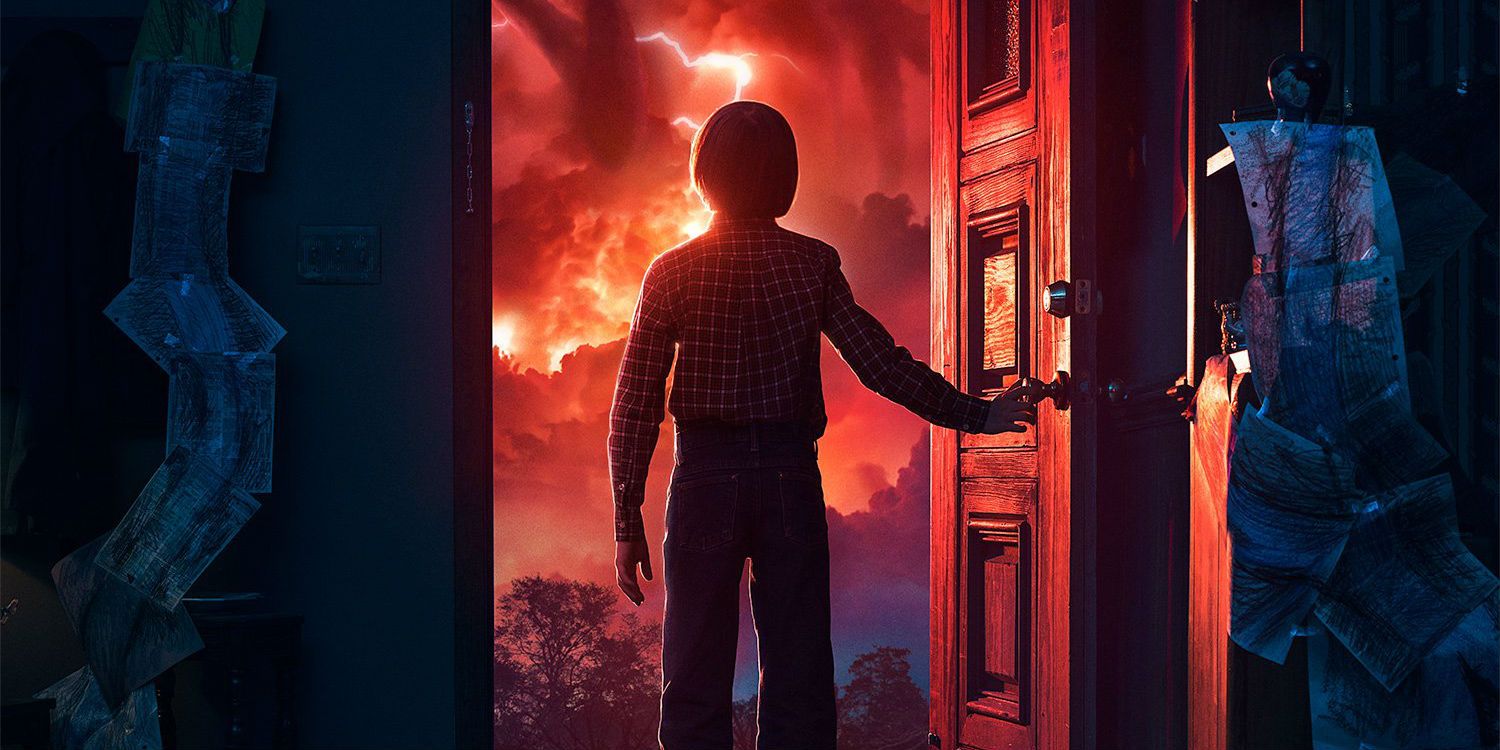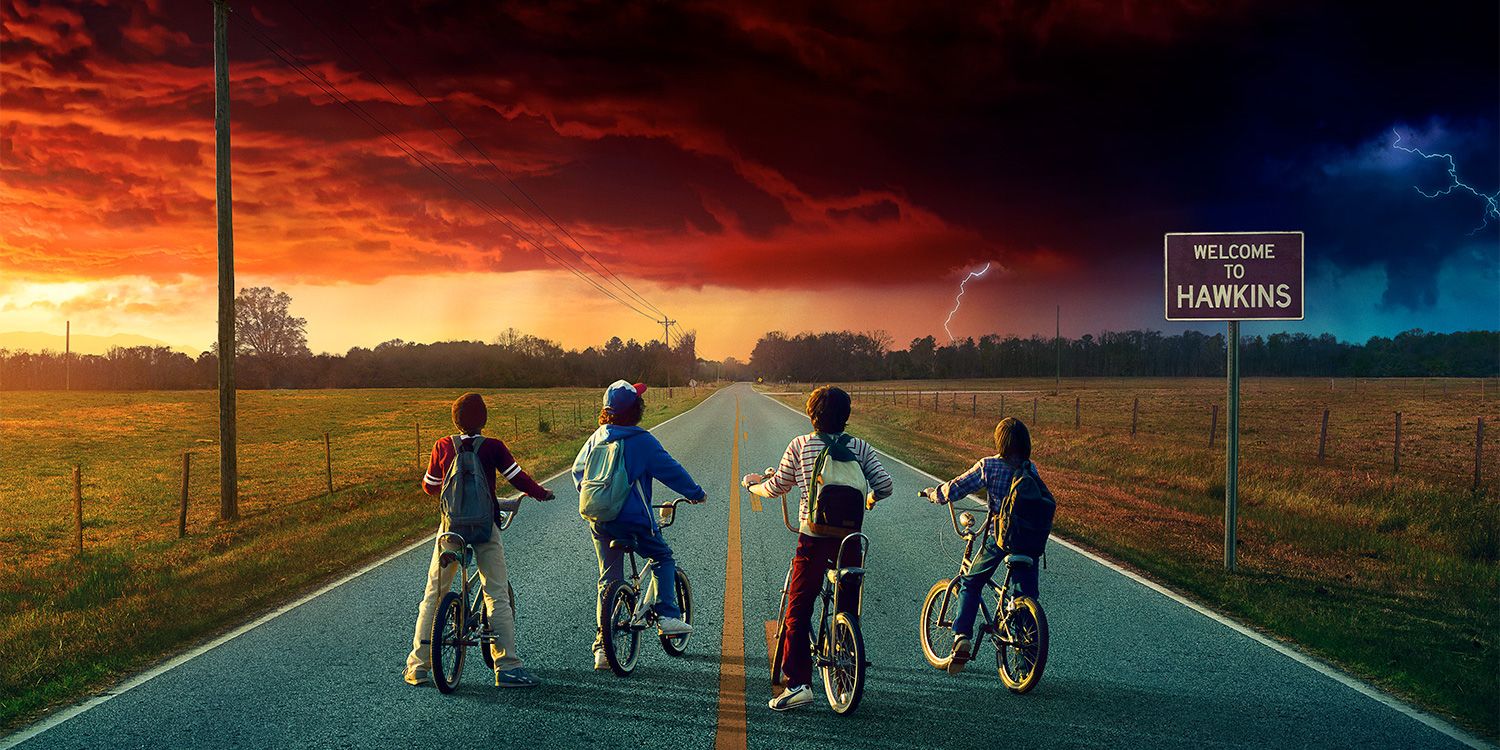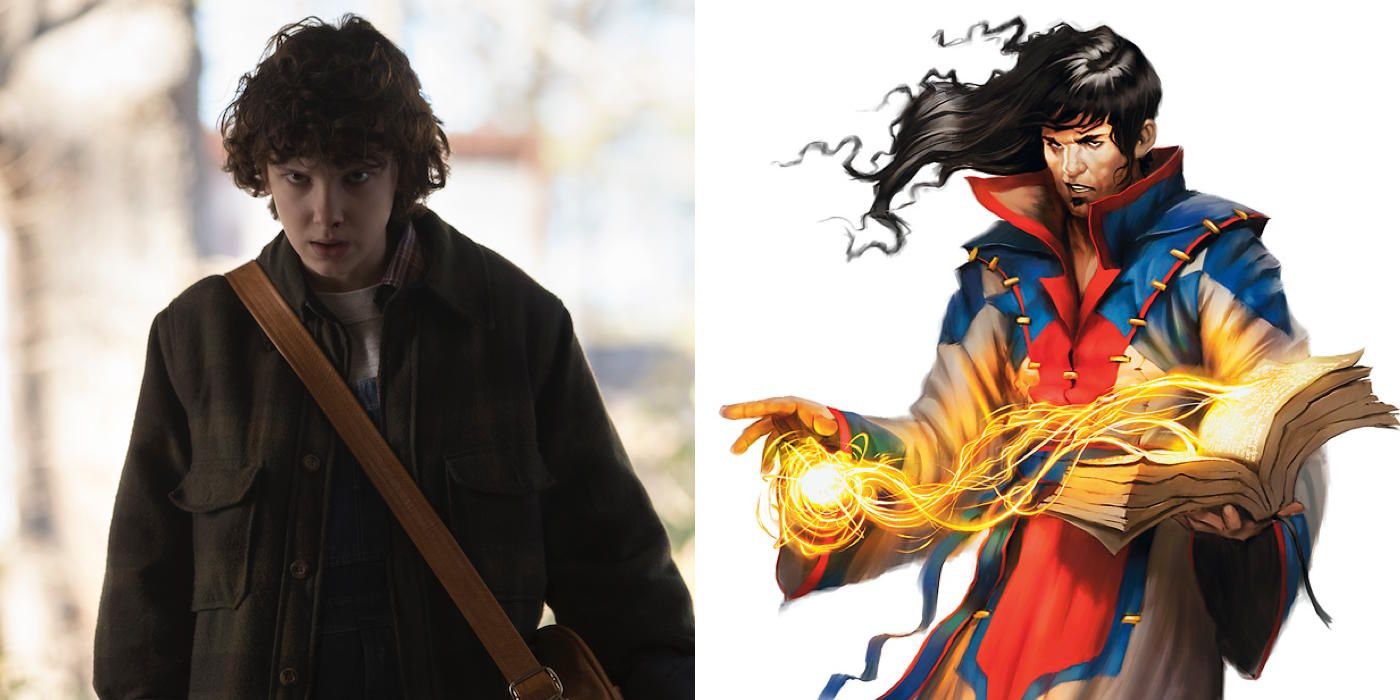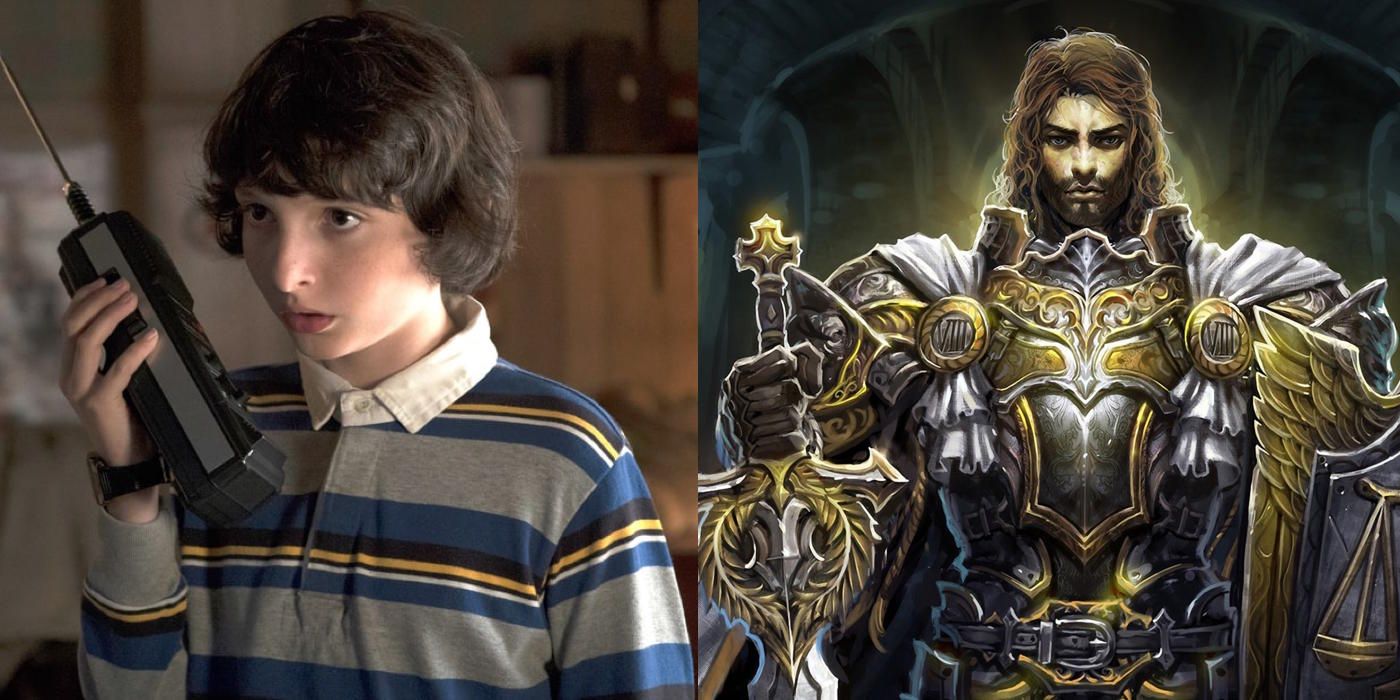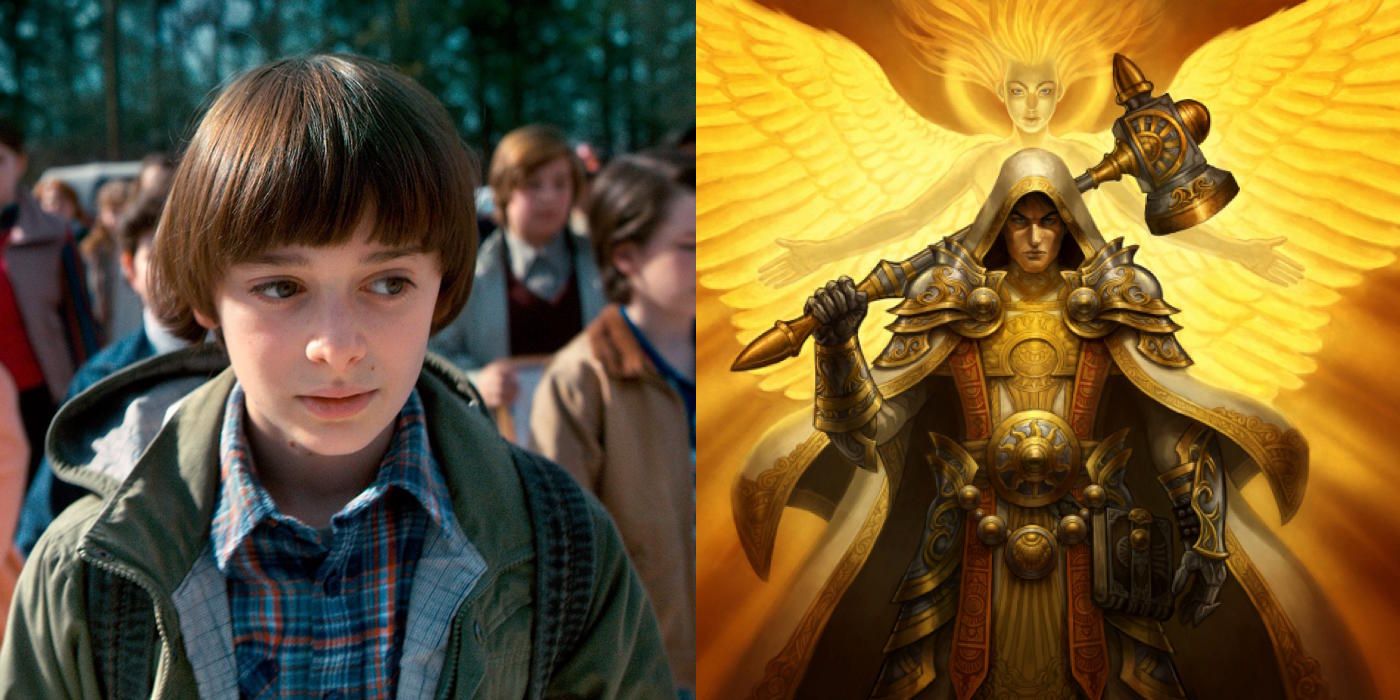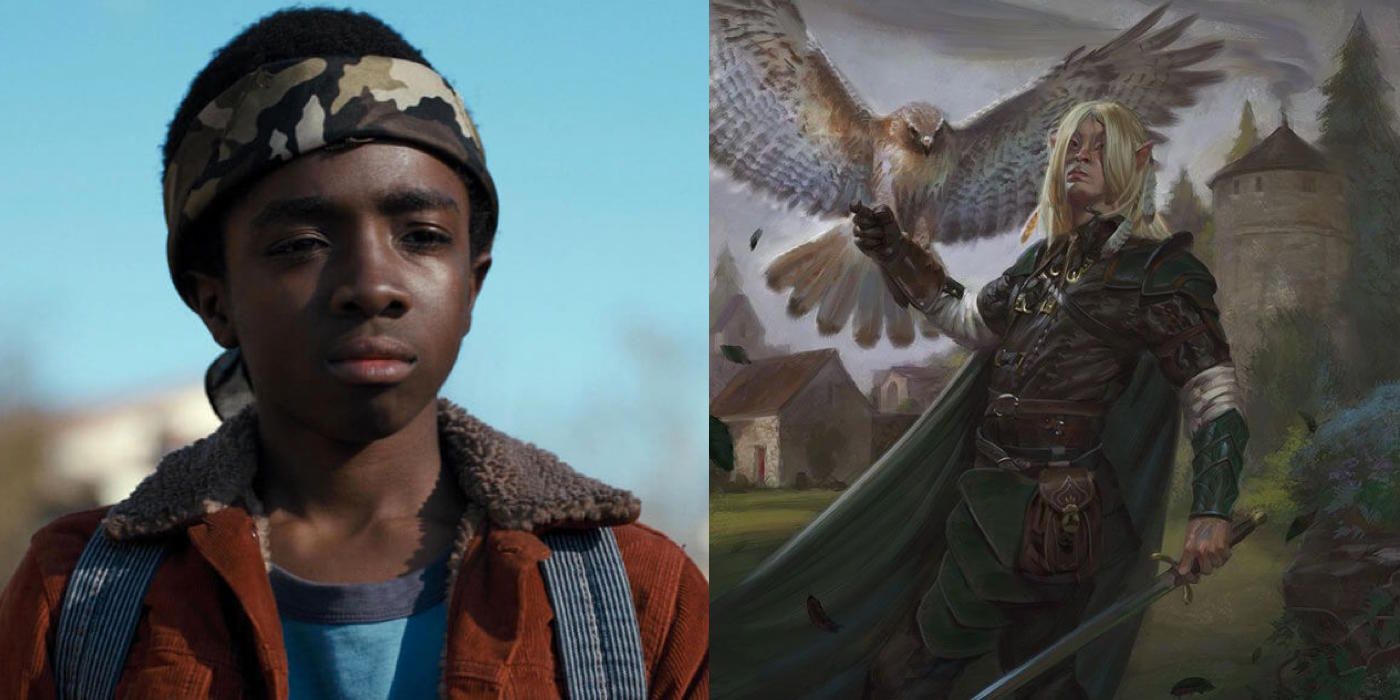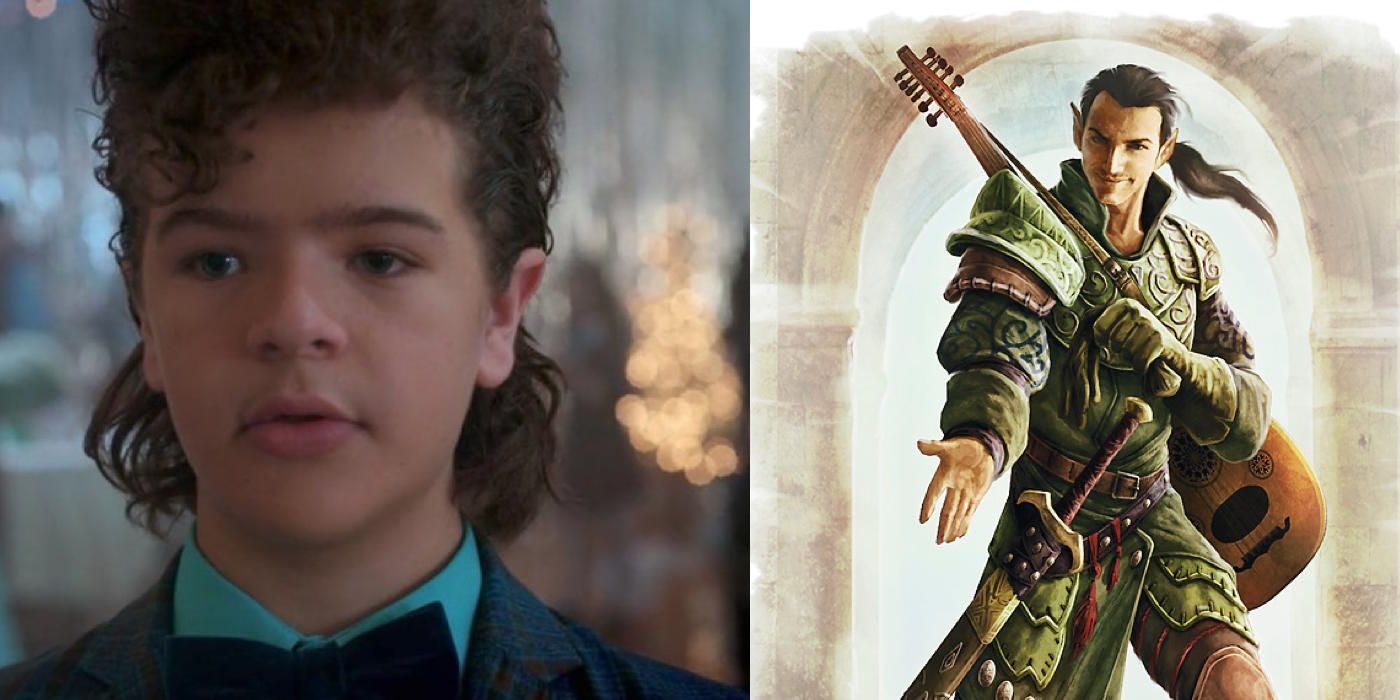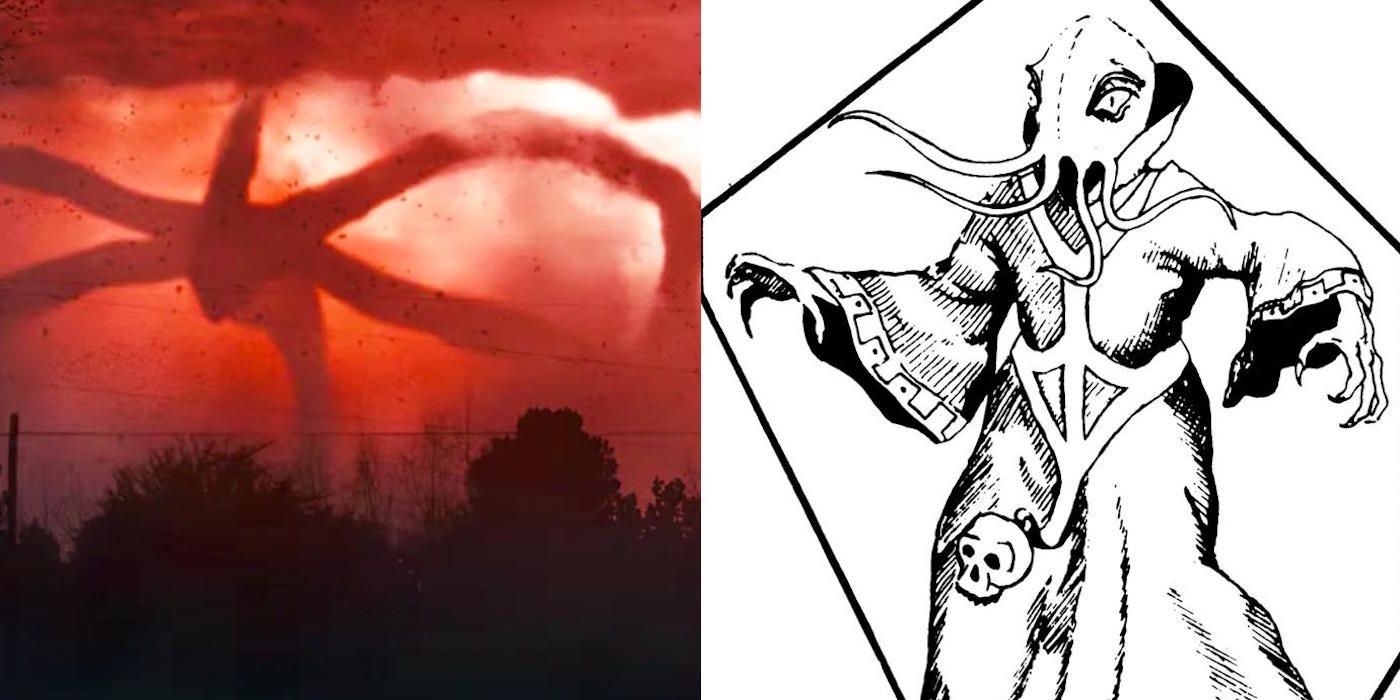Stranger Things is a show packed full of pop culture references, from movies to video games to comics. A major touchstone for the series, however, is the roleplaying game Dungeons & Dragons.
Beyond its role as a favorite hobby for the geeky young kids who lead the series, the game offers a parallel to the action of the show, and takes things even further by having the characters reference this as their normal lives evolve into a fantastical adventure. From using monsters in the game to categorize the real-life terrors Hawkins is facing to the roles the kids play within their group, knowledge of some key D&D terminology can help you better understand season 2 of Stranger Things.
The Party
The Party is one of the most basic elements of Dungeons & Dragons: an adventuring group comprised of the various player characters. In both seasons of Stranger Things, The Party has a dual nature as it describes both the campaign being played by the kids in Mike's basement, as well as their actual friendship group in the real world. We know that the gang has been playing at least since 1979, and they're still going strong in 1983, when the first season is set.
Here, Will is known as Will the Wise,' a Wizard, while Dustin plays a Dwarf and Lucas plays a knight. For the campaign, Mike serves as the Dungeon Master, who designs and executes the campaign while also controlling all of the other characters and creatures encountered. It's also in this game that the Demogorgon emerges, a two-headed beast dubbed the "Prince of Demons" that Eleven uses to represent the monster that kidnapped Will and Barbara.
It's fitting that season 2 of the series doesn't feature the kids playing D&D, as the game essentially becomes their reality after their first encounter with the Upside-Down. While the monster wasn't actually a Demogorgon, and the kids don't possess the abilities of their player characters, the reality of the supernatural adventure they find themselves in marks a turning point for them. It's because of this that season 2 of Stranger Things shifts from the kids playing as certain characters to thinking of themselves in D&D terms.
Eleven the Mage
When Max confronts Mike about not wanting her in the group, it's not clear what his reasoning is. We soon find, however, that he views her as something of a rival for Eleven's former place in the real-world version of The Party that emerged last season. As Mike lays out, he's the Paladin, Will is the Cleric, Lucas is the Ranger, and Dustin is the Bard. Eleven, meanwhile, was the Mage (perhaps the most fitting of all).
Though Dungeons & Dragons has changed a lot since the version the Hawkins A/V Club would have played in the early 80s, the core classes are fairly consistent. A Mage is a wizard, capable of casting all sorts of spells once they're learned. While none of the other characters have any true powers (not counting Dustin's pearls - rrrr!), Eleven is about as close to a Mage as exists in the the "real world." What's more, the arrival of Eight further establishes how the idea of Mages and Wizards plays into the reality of Stranger Things.
According to the 2nd Edition Player's Handbook for D&D, œAccounts of powerful wizards and sorceresses are rare, since their reputations are based in no small part on the mystery that surrounds them. These legendary figures worked toward secret ends, seldom confiding in the normal folk around them.
With the introduction of more children with powers, Stranger Things evokes the Mages of D&D with a set of mysterious characters each with their own abilities and goals. Eleven, as potentially the youngest of the children, is still figuring out how she wants to use her powers. But it's clear that more Mages are on their way in future seasons.
Mike the Paladin
Mike positioning himself as a Paladin is interesting, as these are holy knights. Though that could mean a religious affiliation, it often meant they crusaded for what they saw as all things good and noble. They also possess some spellcasting abilities of their own.
While the 1983 campaign features Mike as the DM, he views himself in the actual group as the righteous warrior - likely due to his desire to protect Eleven from evil. In season 2, this sense of nobility transfer over to Will, with Mike constantly at his best friend's side during his struggles and trips to the hospital. Though Mike never really gets into the action, his altruism is certainly one of his most powerful traits.
Will the Cleric
The Will of the campaign may be a wizard, but in the real-world version of The Party he's a different sort of magic-user: the Cleric. With divinely-appointed powers, Clerics have control of life and death and are best known as healers. At first blush, it's hard to know why Will is given this class. After all, everything we've seen from him position him more as an artist than a magical healer. It's later in season 2, however, that the connection grows.
A Cleric's power over death means they can control various undead creatures. Once Will is possessed by the shadow monster, akin to a divine being, he gains power of the Demodogs. While the Cleric class may not initially fit Will, his growing connection to the Upside Down proves the writers knew what they were doing.
Lucas the Ranger
Like the idea of being a Knight, the Ranger is broad enough that it could certainly fit with any of the group. Still, it's undeniable that Lucas is willing to risk his neck, and his use of a wrist rocket mirrors the bow and arrow many Rangers rely on.
Inspired by Aragorn from Lord of the Rings, the Ranger class is a group of roving warriors skilled in both sword and bow. Stealthier than a Knight but quicker than a Thief, they are well-rounded hunters, trackers, and fighters. In some ways, this almost applies to Steve more than any of the kids in the group, but it's not a bad description of Lucas' place.
Dustin the Bard
Dustin's class makes the most sense outside of Eleven's, as he's the Bard - essentially a traveling storyteller. In D&D they're both warriors and spellcasters, with their magic connected to their ability to weave a tale.
Like Loki in Norse mythology, Bards are silver-tongued by nature - a fitting classification for Dustin. Given how often The Party puts themselves in situations unbefitting children, Dustin's ability to charm his way into situations and out of trouble is a necessary attribute. He's even able to pull Steve away from his search for Nancy and drag him along on a wild D'art chase. Dustin may not have powers like Eleven, but his Bard-like skills are the next best thing.
The Mind Flayer
Like the Demogorgon in season 1, and its Demodog offshoots later on, season 2 uses a Dungeons & Dragons monster to explain what the shadow monster is. Both the writers and Dustin use the example of the Mind Flayer, also called an illithid. Psychic beings inspired by Cthulhu, the Mind Flayers band together using their hive mind to enact their evil plots. While they don't bear much of a resemblance to the shadow monster, the collective consciousness, psychic powers, and tentacles all make the Mind Flayer a fitting comparison.
-

